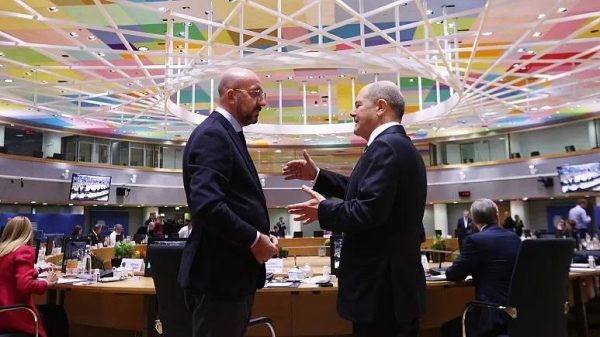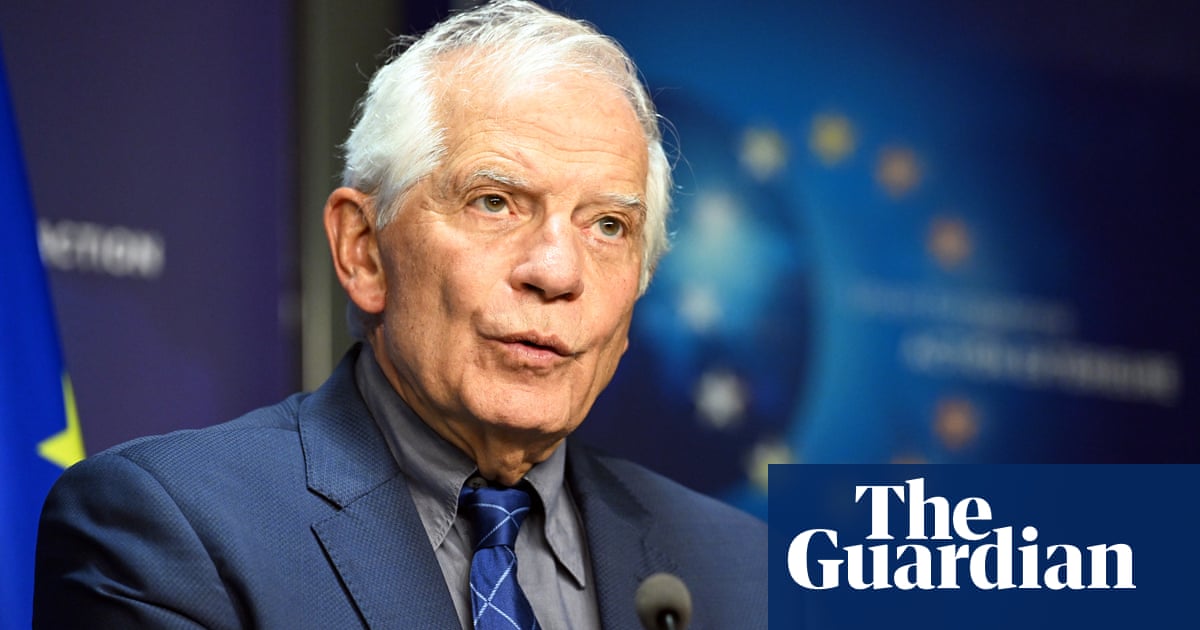
The June 6-9 elections saw the European Parliament shift to the right
Under the EU’s treaties, their choice should take into account the results of the election
BRUSSELS: The 27 leaders of the European Union gather in Brussels on Monday evening to take stock of recent European election results and begin the fraught process of dividing up the bloc’s top jobs, but they will be playing their usual political game with a deck of reshuffled cards.
The June 6-9 elections saw the European Parliament shift to the right and dealt major blows to pro-European governing parties in Paris and Berlin. The Franco-German motor that usually propels EU politics along was weakened, and new dynamics could be on show at the informal dinner.
Under the EU’s complicated division of powers, the presidents and prime ministers get to nominate the next head of the bloc’s powerful executive branch, the European Commission, which is responsible for drawing up EU policy on everything from climate to the colossal shared budget.
Under the EU’s treaties, their choice should take into account the results of the election.
German conservative Ursula von der Leyen looks likely to stay on as president for another five years after a strong showing for her center-right European People’s Party parliamentary group.
In an interview with Germany’s Welt TV on Saturday, Chancellor Olaf Scholz said “it is clear after the results of the elections that everything indicates that there can be a second term in office for Ursula von der Leyen.” He said he believes the top job nominations could be agreed “quickly.”
Von der Leyen, at the helm of the EU since 2019, led a huge drive during the pandemic to secure billions of COVID-19 vaccine doses, set up a historic post-pandemic economic recovery fund and, from 2022, drummed up support for Ukraine in its war with Russia and extended a hand to Kyiv to join the bloc.
But nothing is guaranteed. Von der Leyen’s presidential style has at times riled her commission colleagues, and she is deeply unpopular in some corners of the EU Parliament, where she will need the support of 361 of the 720 lawmakers to hold on to her job.
The other big posts up for grabs are that of European Council president, held by Belgian centrist Charles Michel, and EU foreign policy chief, occupied by Josep Borrell of Spain from the center-left. The council president’s job is to broker deals between the 27 member states, while the top diplomat represents the EU on the world stage.
In Brussels, names for the big posts have circulated for months. Portuguese Socialist Prime Minister António Costa is frequently mentioned to become council president. Estonian Prime Minister Kaja Kallas, well known for her tough line on Russia, has been floated as the bloc’s potential top diplomat.
French President Emmanual Macron said the aim Monday is “to try to have a quick consensus. But perhaps we need to wait until June 27-28,” when the leaders meet again in Brussels for a formal EU summit.
“I don’t want to preempt things,” Macron said on Saturday. “These discussions are happening with 27 of us, so we have advanced, several of us have called each other, and I think it’s possible. I think it’s possible in the days to come, or in the week to come.’’
Von der Leyen’s own path to power in 2019 shows that the tussle over EU top jobs can be unpredictable. Then a German defense minister somewhat tainted by scandal in her ministry, von der Leyen was a relative unknown in Brussels when her name was raised by leaders in closed-door discussions.
Back then, the support of her close ally, former German Chancellor Angela Merkel, and Macron helped her clinch the nomination. Given the current balance of power in Europe, it’s hard to imagine Macron and Scholz pulling a major surprise this time.
Scholz is licking his wounds after his Social Democrats took a drubbing, while Macron is tied up with the snap elections he called last week in a risky bid to see off the far right.
In a secret ballot in 2019, von der Leyen made it over the line with 383 votes, nail bitingly close to the threshold of 374. She was an unpopular nominee because she had not campaigned in elections as a lead candidate and was seen as being imposed on Parliament by the leaders.












